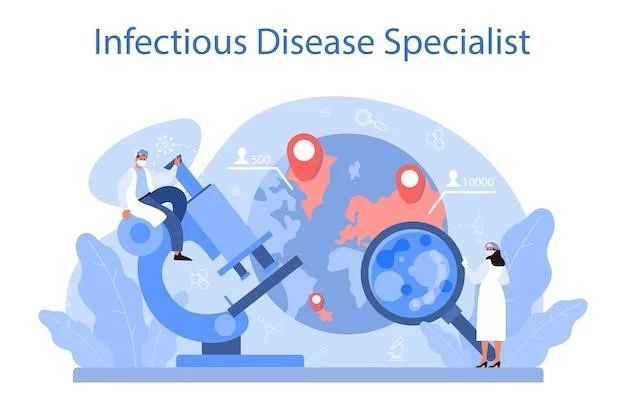Understanding Hereditary Pancreatitis
Hereditary pancreatitis is a genetic disorder characterized by pancreas inflammation․ This article provides insights into the genetic mutation causing this condition‚ its impact on the digestive system‚ chronic pain due to pancreatic enzyme insufficiency‚ and the role of alcohol consumption in triggering acute attacks․
Introduction to Hereditary Pancreatitis
Hereditary pancreatitis is a rare inherited condition characterized by recurrent pancreatitis attacks․ The development of this condition is linked to a genetic mutation that affects the pancreas․ Pancreatitis attacks present with symptoms such as severe abdominal pain‚ nausea‚ and vomiting․
Individuals with hereditary pancreatitis have a higher risk of developing chronic pancreatitis‚ leading to long-term damage to the pancreas․ The pancreas plays a crucial role in the digestive system by producing enzymes that help break down food for absorption․
Genetic testing is essential for diagnosing hereditary pancreatitis‚ as identifying the specific genetic mutation can help predict the likelihood of developing the condition․ Understanding the genetic basis of hereditary pancreatitis is crucial for effective management and treatment strategies․
Living with hereditary pancreatitis can be challenging‚ as recurrent acute attacks can significantly impact daily life․ It is vital for individuals with this condition to work closely with healthcare professionals to manage symptoms‚ prevent complications‚ and improve quality of life․
By delving into the complexities of hereditary pancreatitis‚ individuals can gain a better understanding of this genetic disorder and the implications it holds for their health․ Through education and awareness‚ we can empower those affected by hereditary pancreatitis to navigate their healthcare journey with knowledge and resilience․
Genetic Basis of the Disease
Hereditary pancreatitis is caused by genetic mutations that are passed down from parents to children․ The most common gene associated with hereditary pancreatitis is the PRSS1 gene‚ responsible for encoding an enzyme called cationic trypsinogen․ Mutations in this gene lead to the premature activation of trypsin‚ a pancreatic enzyme‚ causing inflammation within the pancreas․
These genetic mutations disrupt the normal function of the pancreas‚ resulting in recurrent acute pancreatitis attacks and the development of chronic pancreatitis over time․ Understanding the genetic basis of hereditary pancreatitis is crucial for early diagnosis and intervention․
Individuals with a family history of hereditary pancreatitis are encouraged to undergo genetic counseling and testing to identify the specific mutation․ By determining the genetic cause of the disease‚ healthcare providers can tailor treatment plans and lifestyle recommendations to manage symptoms effectively and prevent complications․
Research into the genetic factors contributing to hereditary pancreatitis continues to advance our understanding of this complex disease․ Genetic testing not only aids in diagnosing hereditary pancreatitis but also plays a vital role in identifying at-risk family members who may benefit from proactive monitoring and early intervention․
By unraveling the genetic underpinnings of hereditary pancreatitis‚ scientists and healthcare professionals can explore targeted therapies and personalized approaches to managing this inherited condition․ Genetic insights pave the way for precision medicine strategies that aim to improve outcomes and quality of life for individuals affected by hereditary pancreatitis․
Symptoms and Diagnosis
Hereditary pancreatitis manifests through various symptoms‚ including severe abdominal pain‚ nausea‚ vomiting‚ and back pain․ These symptoms often coincide with acute pancreatitis attacks‚ leading to distress and discomfort for individuals affected by this genetic disorder․
Diagnosing hereditary pancreatitis involves a comprehensive evaluation that considers the patient’s medical history‚ family history of pancreatitis‚ and symptoms presentation․ Genetic testing plays a crucial role in confirming the presence of specific mutations associated with hereditary pancreatitis․
Other diagnostic tools‚ such as imaging studies like CT scans or MRIs‚ may be utilized to assess the extent of pancreatic inflammation and damage․ Blood tests to measure levels of pancreatic enzymes‚ such as amylase and lipase‚ can provide additional insights into pancreatic function and inflammation․
Early diagnosis of hereditary pancreatitis is essential for initiating timely interventions to manage symptoms and prevent complications․ Healthcare providers work closely with patients to monitor symptoms‚ adjust treatment plans‚ and offer supportive care to improve overall well-being․
Understanding the typical symptoms and diagnostic procedures associated with hereditary pancreatitis empowers individuals to seek appropriate medical attention and genetic counseling․ By raising awareness about the signs of this inherited condition‚ we can promote early detection and proactive management strategies that enhance the quality of life for those living with hereditary pancreatitis․
Understanding the Pancreas and Its Functions
The pancreas is a vital organ located behind the stomach that plays a crucial role in the digestive system․ Its main functions include producing digestive enzymes that aid in food digestion and releasing hormones like insulin and glucagon to regulate blood sugar levels․
Within the pancreas‚ specialized cells called exocrine cells secrete digestive enzymes‚ such as amylase‚ lipase‚ and trypsin‚ into the small intestine to break down carbohydrates‚ fats‚ and proteins from the food we consume․ These enzymes help facilitate nutrient absorption and support overall digestive health․
In addition to enzyme production‚ the pancreas contains endocrine cells‚ specifically the islets of Langerhans‚ which are responsible for releasing hormones directly into the bloodstream․ Insulin‚ for example‚ regulates glucose uptake by cells‚ while glucagon helps increase blood sugar levels when needed․
For individuals with hereditary pancreatitis‚ disruptions in pancreatic enzyme production and function due to genetic mutations can lead to inflammation and damage within the pancreas․ This impairment not only affects digestive processes but also contributes to the development of pancreatitis symptoms and complications over time․
By understanding the intricate functions of the pancreas and the impact of genetic mutations on its normal operation‚ researchers and healthcare providers can develop targeted treatments and management strategies tailored to address the specific challenges faced by individuals with hereditary pancreatitis․ Educating patients about their pancreatic health empowers them to take an active role in managing their condition and optimizing their overall well-being․
Acute Attacks and Management
Acute pancreatitis attacks in individuals with hereditary pancreatitis are characterized by sudden and severe abdominal pain‚ often radiating to the back‚ accompanied by nausea‚ vomiting‚ and overall discomfort․ These episodes can be debilitating and require prompt medical attention․
Management of acute pancreatitis attacks focuses on pain relief‚ hydration‚ and rest to allow the pancreas to recover․ Intravenous fluids may be administered to maintain hydration and support organ function during acute episodes․ Pain medication and anti-nausea drugs can help alleviate symptoms and improve patient comfort․
In severe cases of acute pancreatitis‚ hospitalization may be necessary for close monitoring and specialized care․ Healthcare providers may recommend a period of fasting to rest the pancreas and allow inflammation to subside․ Nutritional support‚ either through a feeding tube or intravenous nutrition‚ may be essential in severe cases where oral intake is limited․
After recovering from an acute pancreatitis attack‚ individuals with hereditary pancreatitis should work closely with their healthcare team to prevent future episodes and manage chronic symptoms․ Lifestyle modifications‚ such as avoiding alcohol consumption and following a low-fat diet‚ are often recommended to reduce the risk of recurrent attacks․
By understanding the triggers and management strategies for acute pancreatitis attacks in hereditary pancreatitis‚ individuals can take proactive steps to protect their pancreatic health and improve their quality of life․ Collaboration between patients‚ caregivers‚ and healthcare providers is essential in effectively navigating the challenges associated with this genetic disorder․
Hereditary Pancreatitis vs․ Other Forms
Hereditary pancreatitis presents unique challenges compared to other forms of the condition․ Unlike cases of pancreatitis triggered by factors like alcohol consumption or gallstones‚ hereditary pancreatitis is linked to specific genetic mutations that predispose individuals to recurrent pancreatic inflammation․
Individuals with hereditary pancreatitis often experience pancreatitis attacks at a younger age and may have a family history of the disease․ The genetic basis of hereditary pancreatitis distinguishes it from other forms and underscores the importance of genetic testing and counseling for accurate diagnosis and risk assessment․
While acute pancreatitis attacks can occur in both hereditary and non-hereditary cases‚ the underlying genetic alterations in hereditary pancreatitis can lead to more frequent and severe episodes․ Chronic pancreatitis‚ characterized by persistent inflammation and pancreatic damage‚ is also more common in individuals with the hereditary form of the disease․
Managing hereditary pancreatitis requires tailored approaches that address the genetic component of the condition․ Treatment strategies focus on controlling symptoms‚ preventing complications‚ and promoting pancreatic health through lifestyle modifications and medications․ Regular monitoring and genetic counseling play a critical role in managing hereditary pancreatitis effectively․
By understanding the distinctions between hereditary pancreatitis and other forms of the condition‚ healthcare providers can offer personalized care that addresses the specific needs and challenges faced by individuals with this genetic disorder․ Educating patients about the genetic nature of hereditary pancreatitis empowers them to make informed decisions about their health and well-being․

Treatment Options and Lifestyle Changes
Treating hereditary pancreatitis involves a multifaceted approach that combines medical interventions‚ lifestyle modifications‚ and supportive care․ While there is no cure for this genetic disorder‚ various treatment options aim to alleviate symptoms‚ manage complications‚ and improve quality of life for affected individuals․
Medical treatments for hereditary pancreatitis may include pain management medications to address chronic abdominal pain‚ enzyme replacement therapy to aid digestion‚ and vitamin supplements to address nutritional deficiencies common in pancreatic insufficiency․ In some cases‚ surgery may be necessary to address complications like pancreatic pseudocysts․
Lifestyle changes play a crucial role in managing hereditary pancreatitis․ Patients are advised to avoid alcohol consumption‚ which can exacerbate pancreatitis symptoms and contribute to pancreatic damage․ Adopting a low-fat diet‚ rich in fruits‚ vegetables‚ and whole grains‚ can help reduce strain on the pancreas and support overall digestive health․
Furthermore‚ smoking cessation is strongly recommended for individuals with hereditary pancreatitis‚ as smoking can intensify pancreatic inflammation and increase the risk of complications․ Regular exercise‚ stress management techniques‚ and adequate hydration are also important lifestyle factors that can positively impact pancreatic health and overall well-being․
Genetic counseling is integral to the treatment of hereditary pancreatitis‚ as it helps individuals understand their genetic risk‚ make informed decisions about family planning‚ and access relevant support services․ Engaging in ongoing discussions with healthcare providers and genetic counselors can empower patients to navigate the complexities of managing a genetic disorder effectively․
Living with Hereditary Pancreatitis
Living with hereditary pancreatitis presents unique challenges that require ongoing management and support․ Coping with recurrent pancreatitis attacks‚ chronic pain‚ and dietary restrictions can significantly impact the quality of life for individuals affected by this genetic disorder․
Support from healthcare providers‚ including gastroenterologists‚ genetic counselors‚ and pain management specialists‚ is essential for developing personalized treatment plans and addressing the physical and emotional aspects of living with hereditary pancreatitis․ Regular follow-ups and open communication with the healthcare team can help individuals navigate the complexities of this condition․
Education plays a vital role in empowering patients to take an active role in managing their hereditary pancreatitis․ Learning about the genetic basis of the disease‚ recognizing early symptoms of pancreatitis attacks‚ and understanding the importance of adhering to treatment recommendations can improve outcomes and enhance overall well-being․
Support groups and online communities can provide valuable peer support and resources for individuals living with hereditary pancreatitis․ Sharing experiences‚ coping strategies‚ and insights with others facing similar challenges can foster a sense of community and reduce feelings of isolation often associated with chronic health conditions․
Embracing a positive mindset‚ practicing self-care‚ and prioritizing mental health are crucial aspects of living well with hereditary pancreatitis․ Building a strong support network‚ engaging in activities that bring joy‚ and seeking professional guidance when needed can help individuals navigate the ups and downs of managing a chronic genetic disorder․
